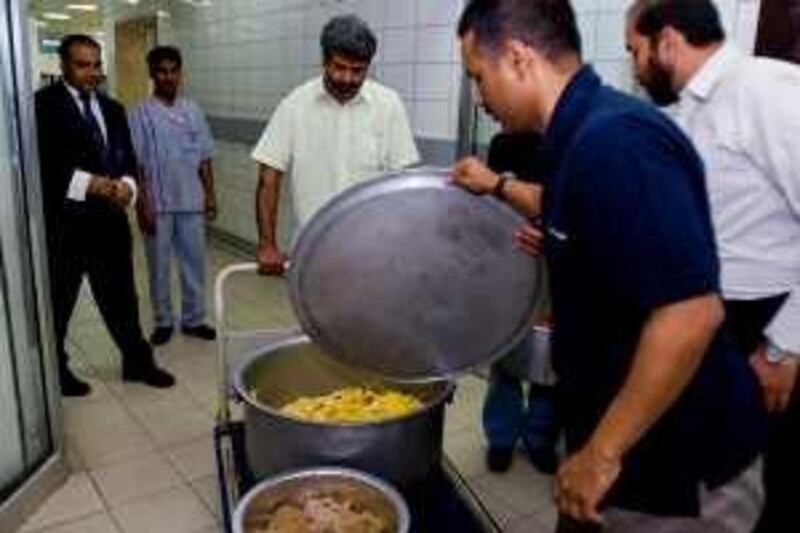DUBAI // More than seven tons of food left over from parties, weddings, international conferences and other major events have been collected and given out this year to labourers needing a decent meal.
The municipality has distributed the food at labour camps in areas including Sonapur and Al Quoz as part of its food recovery programme. More than 2,000 workers have felt the benefit of the initiative since January, officials said.
Khalid Sharif al Awadhi, the director of the Food Control Department, said: "This is just the first step to reduce wastage of good, edible food. "We would like to increase the participation of other companies and volunteers so that the volume of food wastage is reduced substantially."
Mr al Awadhi said Dubai imported almost 85 per cent of its food and an "enormous" amount - some 20 per cent of food from households, commercial kitchens, markets and restaurants in the city - was wasted.
The food recovery initiative began in January, when volunteers started collecting food from leading hotels and delivering it to labourers. "The handouts are always such that it makes one good meal for the person," said Mohammed Sadique, a co-ordinator at the Kerala Youth Cultural Club, which was the first to co-ordinate with the municipality in collecting and delivering the food. "We usually pick up the food in the night after the function concludes," he said. "The orders usually come on weekends when big functions are held."
Excess food from big dinners has been collected from the Dubai World Trade Centre, Al Boom Tourist Village, Al Bustan Rotana and other hotels and restaurants. "In each trip we are able to collect food for an average of 100 to 120 people and we have already made over 20 trips since the start of this year," said Mr Sadique, adding that biryani, Indian curries, bread and other meat dishes were the most popular among the workers.
Gulfood, the international festival held in Dubai last month, provided almost two tons of food for workers at the Sonapur camps. Food and drinks were packed into 185 kits and distributed to workers, while items with a longer shelf-life, such as dried fruits, tea, coffee and pasta, were handed to common kitchens. Mr al Awadhi said his department ensured the food was collected and served safely. Organisations that collected perishable, cooked foods were required to have proper storage and transport facilities.
People or organisations wishing to take part in the programme can call Dubai Municipality on (04) 206 4211.






